SUCCESS STORY
Dr. Alexandra Kokkonen:
Embracing Change and Creating a Purposeful Path
By Guillaume Jean Lefebvre
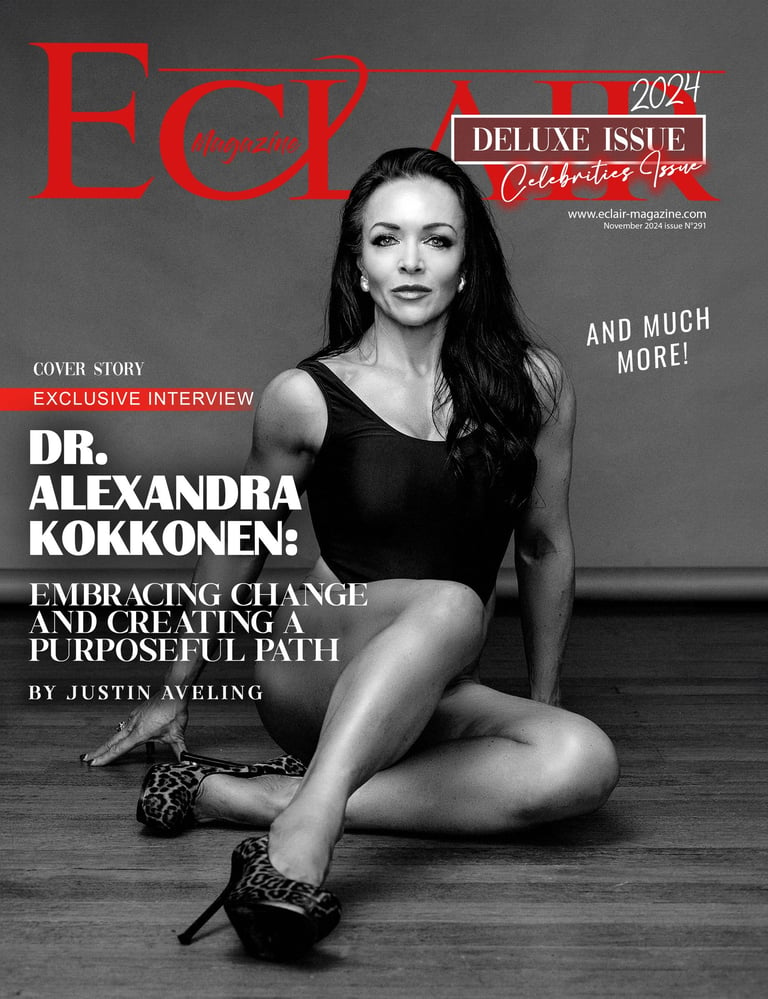

Since our last conversation, Dr. Alexandra Kokkonen, or Alex, has continued to evolve both in her professional work and personal life. The ever-changing world around her has only amplified her focus and resolve. For Alex, the pace of life has quickened, bringing new opportunities and a chance to embrace change with positivity. Her philosophy centers around staying grounded amidst the chaos, choosing calm as a superpower in turbulent times, and forging her own path rather than becoming overwhelmed by external events.
"I’ve realized that worry and anxiety are energy drains," she shares, emphasizing the importance of remaining focused, even in uncertain times. For Alex, this mindset has allowed her to navigate a particularly significant year, filled with writing, speaking, and presenting. She reflects on how much more can be achieved with the right focus and how the ability to create grows with practice. It's been a year of embracing challenges and finding a deep sense of purpose.
When asked about the greatest challenge she's faced recently, Alex notes that time has been her biggest obstacle, as is the case for many. As a natural planner, she has learned to stretch her limits and make things happen within condensed timeframes. "Pressure’s a privilege," she remarks, recognizing that the work she does is an opportunity rather than a burden.
Fitness, an essential aspect of Alex's life, also presented a challenge when she hit a plateau. However, by questioning her own limiting beliefs and seeking out new perspectives, she overcame this hurdle. Now, at 54, she’s excited about what the next decade holds, viewing it as unknown but full of possibilities.
Alex’s love for her work continues to fuel her inspiration. "When we’re inspired, we’re energized," she says, explaining that the genuine enjoyment she finds in writing, creating, and presenting keeps her motivated. She’s also deeply grateful for the people she works with, who share a strong work ethic and contribute to something greater than individual success.
Looking to the future, Alex sees the importance of thinking long-term in an ever-changing world. "None of us know the future, and opportunity presents itself in unforeseen ways," she states. Though planning might not always be possible, she believes that preparation is key to seizing opportunities as they arise.
Over the past year, Alex has honed her patience, persistence, and stamina, facing an endurance test with her intensive writing projects. The rapidly evolving technology industry has necessitated constant learning, especially as it impacts so many aspects of life and business. For Alex, developing narratives that provoke thought and cast scenarios in a new light has been a key focus, as has articulating nuance and difference.
"There’s always a way to approach topics constructively," she observes, particularly when dealing with complex or contentious issues. This year, she’s seen her writing and speaking projects merge, allowing her to better understand the nuances of communication in an interconnected world.
The technology industry is rapidly transforming, and Alex has adapted by continuing her education and understanding how these changes manifest across different industries. "Geographical, cultural, and regulatory differences are becoming greater," she notes, adding that this dynamic landscape requires a fresh approach to problem-solving.
Collaboration remains a vital part of Alex's work. With increasingly complex issues to address, she believes networking across businesses and industries is crucial. Her collaborators have included subject matter experts from around the world, as well as industry bodies and organizations.
Creativity, for Alex, comes from a fresh mindset and discipline. "The past is behind us, but also inside us," she says, stressing the importance of starting each project without preconceived biases. For her, creativity and innovation flow naturally when she’s excited about her work.
Among her recent projects, Alex highlights the ambitious whitepapers that required bringing together new perspectives and collaborators. Tackling difficult topics head-on is what sets her work apart. She’s not afraid to explore uncomfortable angles, especially when it comes to discussing the limitations of artificial intelligence or the future integration of humans and technology.
"Being real, not sensationalist," Alex explains, has become a hallmark of her work. Her ability to tackle the "awkward" or less popular angles has proven valuable in her industry, and she believes that it’s important to keep challenging the collective comfort zone.
For Alex, risk is inevitable, and it’s all about how one approaches it. She asks herself, "Does it matter?" when faced with uncertainty, using this question to guide her decision-making process.
Her advice to others is simple: learn constantly and develop critical thinking skills. She emphasizes the importance of networking and staying open to new ideas and opportunities. Life is a series of phases, and there are no true endings, only transitions.
Reflecting on her career, Alex expresses gratitude for the opportunities she’s had to travel and work internationally. These experiences have been invaluable to her creative work. While she acknowledges that she might have acted with greater conviction at times, she has no regrets, particularly when it comes to following her passions.
Dr. Alexandra Kokkonen’s journey is one of continuous learning, growth, and adaptation. Her ability to embrace change and tackle challenges head-on has positioned her as a thought leader in her field, with a bright and exciting future ahead.
BIOGRAPHY
1. Your career has always been marked by innovation and adaptation. Can you pinpoint specific moments that helped you redefine your approach to the major shifts happening in today’s world?
One was moving back to Australia in late 2003 from living in Singapore. This was a big change on many levels. I came back to Australia married (at the time) with a young child. Moving out of the expat melting pot of Singapore to the Australian culture and environment was a fundamental shift. Having a young child going through daycare and school, a marriage, studying professionally, and obviously a career while managing a large team of people was a lot to deal with. The social and cultural issues were pronounced, both personally and professionally. Inequalities and differences took on a different light, particularly the human side of the workforce and technology. It was during the first two years after moving back to Sydney that the focus for my research became clear and with a sense of long-term purpose. I was never interested in the technical side of technology; it was always the people and human aspects.
Another ‘moment’ was while living and working in the UK in 2019. The sense of a major shift in the world was clear, though not evident, and of course, this was just before the pandemic. I remember reflecting on how off-balance things seemed in general—the frantic pace of life, the cutthroat atmosphere in the business world, and, frankly, how filthy London was at the time while commuting in and out! A sense of, this can’t continue as it is. Early in 2019, I made a conscious effort to change my life—to simplify, to really question needs versus wants. I was also conscious at this time of how life can play out in ways never imagined earlier. I never would have expected to be living in the UK and working in London at this time, but I was.
2. You’ve mentioned that “calm is a superpower.” How do you concretely maintain this inner calm during periods of intense pressure, and how does it influence your decision-making process?
Part of this is training. I spent many years in my 20s doing martial arts, learning to stay centered under pressure. These are life skills, really, that you take with you—mindset and internal anchors, a sense of buoyancy.
It influences decision-making in that I know to be in a certain frame of mind or state to make certain decisions. There’s a time for some decisions and a time to consciously not make certain decisions. Planning and preparing are ways of maintaining a sense of calm. If anxiety kicks in, it’s usually because I’m not prepared.
Model: Alex Kokkonen - @alex.kokkonen.phd
Photographers: Justin Aveling - @venusanddavid
Matt Marsh @matt_marsh
Liza Salt - @lizasalt
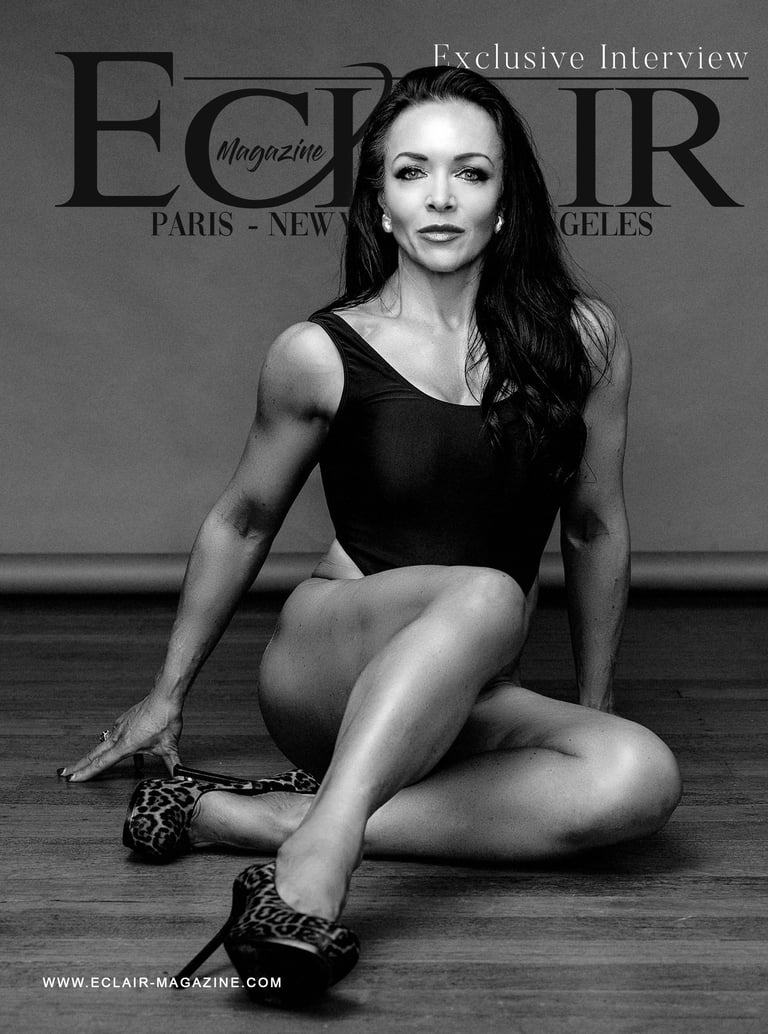

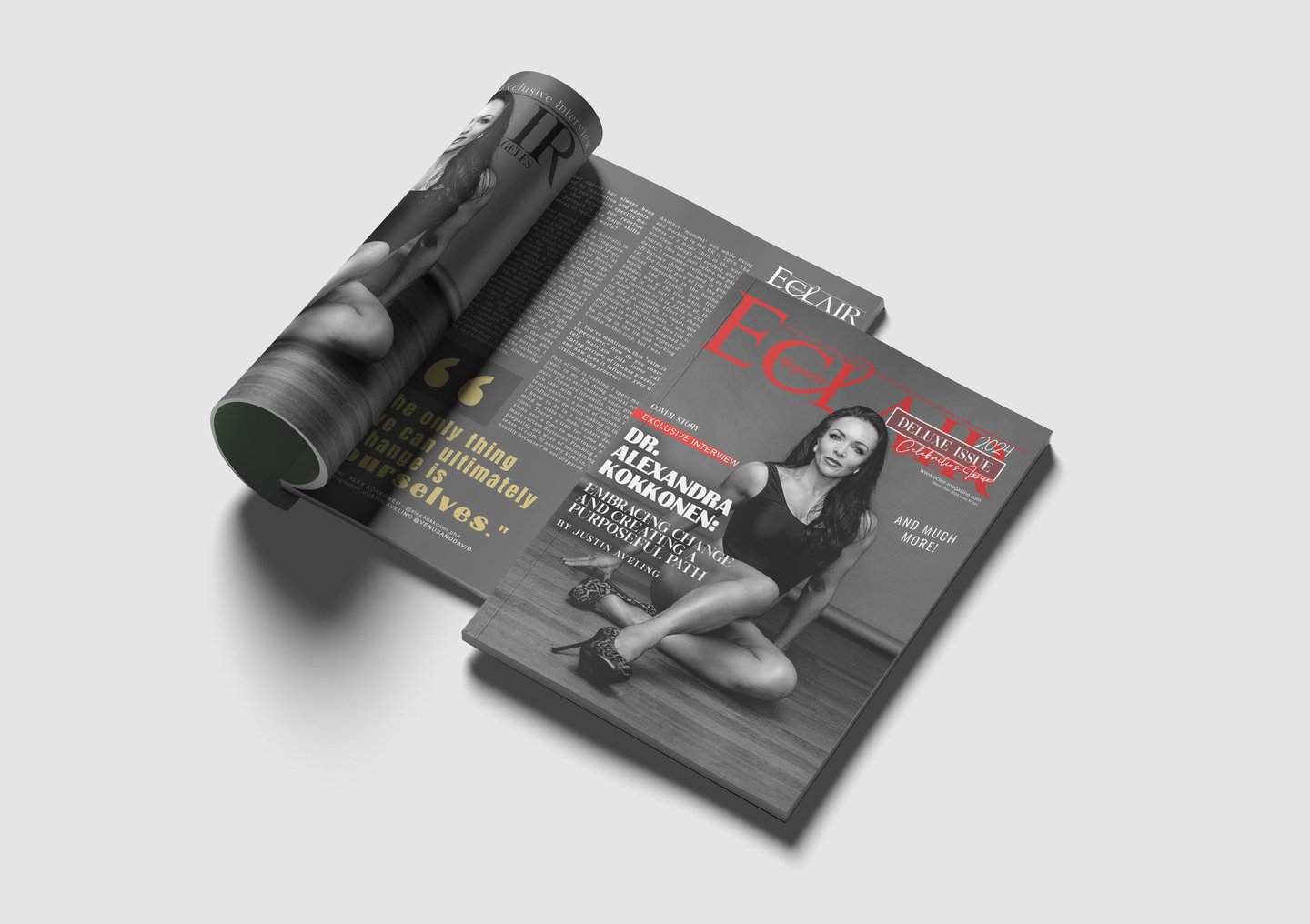

3. The speed of change in the tech industry is striking. How do you identify technological trends that will shape the future, and how do you prioritize which ones deserve the most attention in your work?
Good question. I read constantly (unsurprisingly) and investigate questions, thoughts, and ideas. I always pan out to the big picture and consider the collective as well as individual aspects. The trends come as much from observations and ‘connecting the dots’ between information and general observations. Part of it is also gut feel/intuition—a sixth sense that develops.
What gets attention, in reality, are the trends considered commercially viable in the near term. This is economic reality. We’re generally very aware of the hype around technology and how overblown expectations can be. Most technologies follow a classic hype cycle.
5. As a leader in your field, you face many responsibilities. How do you balance your professional ambitions with your personal development, particularly in areas like fitness and well-being?
Priorities. I made a conscious decision early on in my 20s to not let fitness and health slip. We have one home and place to live, and that’s our body, regardless of anything else. No one can look after your health other than you. Ultimately, everyone around is a guide, help, or coach in some form; the work and effort come from yourself.
So, training is meticulously planned into every day, including the overall training phases we go through as athletes. It’s a lot at times, though I’ve accepted this now as part of life. As we say in the industry, no one can do it for you, and in the end, it’s results or excuses. When the preparation and planning are done properly, it’s surprising just what can be achieved.
6. You’ve mentioned that the industry is rapidly evolving, particularly with the integration of artificial intelligence. In your view, what are the most urgent ethical or societal issues related to this evolution that are often overlooked?
The physical disconnection itself is overlooked. This is one of the major aspects of social media. The digitization of life that we’re witnessing has long-term consequences on all levels—psychological, physical, and emotional.
One of the most urgent issues is the sheer speed of change. A great deal is lost in the speed itself. The generational divides are becoming evident and will become more so. While we are more connected digitally through an invisible web, we’re less connected as people in many respects.
The data ethics and privacy aspect is another whole topic—we’ve only scratched the surface. Technology itself is poorly understood, a combination of issues ranging from education, training, access to technology, degree of willingness and capacity to understand, and the degree of digitization in certain parts of the world, among others.
7. You reached a plateau in your fitness journey but managed to overcome it. Do you think similar "plateaus" exist in the creative process? If so, how do you overcome them and continue to innovate?
Absolutely, yes. Plateaus come around in almost all creative processes, and maybe they’re there to serve us as a pause. Sometimes it’s about accepting the plateau and recognizing something needs to shift to progress. I’ve just had this earlier this year with fitness and realized I had to approach things differently—both practically and in mindset—to move forward. The shift in emotion and attitude can be the alchemist.
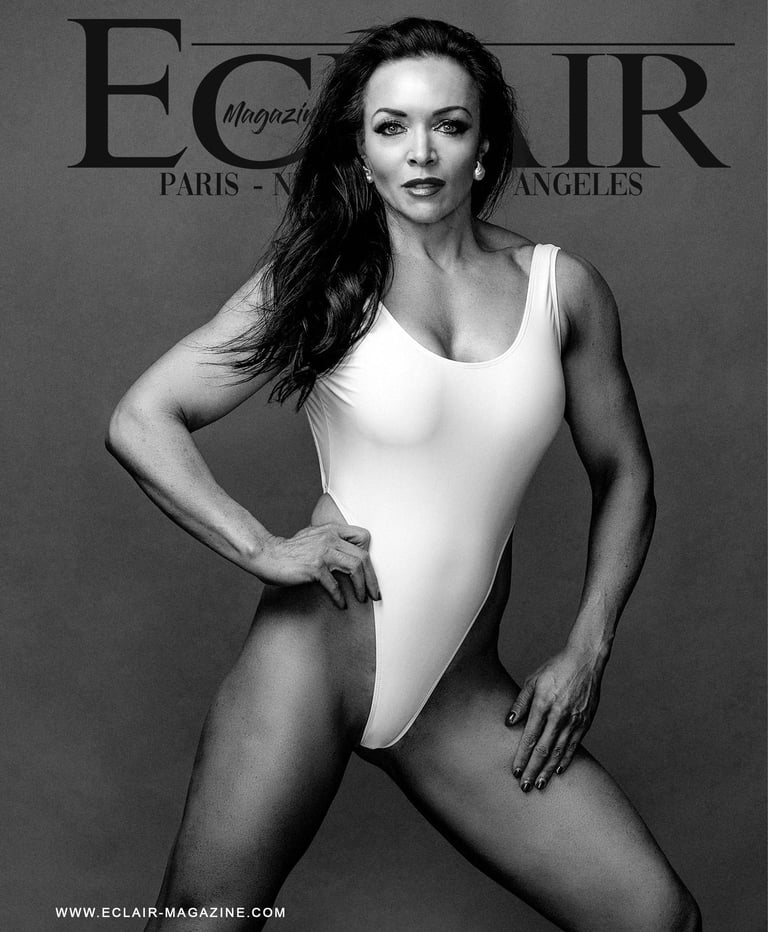

INTERVIEW
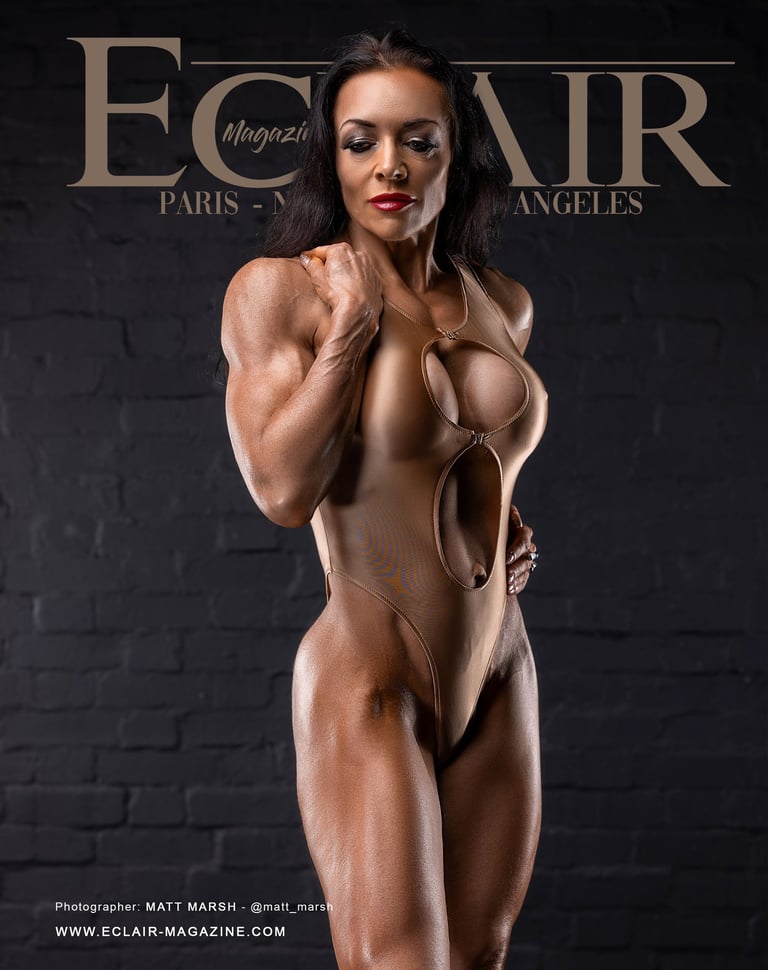

8. Writing has always been central to your work. What draws you most to the writing process, and how has your creative approach evolved over time as you accumulate new experiences and knowledge?
Expression. Writing forces us to articulate what we feel and are attempting to convey. If you can’t write it down, it’s not really ‘real’; the problem statement’s not clear. Writing drives us to think more about what we’re trying to convey and how it will come across. In my work, both aspects are critical.
I probably also find expression through writing easier than speaking sometimes, being partially deaf. There’s a reticence that limited hearing brings—a concern that you’ve not heard something correctly or completely and respond inappropriately. That’s why visuals are important; seeing and sensing.
Over time, the structure of a written piece has become much easier. I understand more of what the audience needs upfront and the explanation required. A lot of my work this year has been explanatory and illustrative, presenting scenarios in different contexts. As my own experience and knowledge have expanded, it’s brought a level of confidence to discuss a broader range of topics, particularly integrating points and painting a broader picture, including implications, influences, and interdependencies. No learning is wasted—unless we choose to actually ignore it!
9. You often speak about staying open to new ideas. What criteria do you use to evaluate new perspectives and avoid the pitfalls of information overload or fleeting trends?
I look at ideas from a macro-picture perspective first—where do they sit, or not? And what the idea is also connected to. I look at the different industries an idea is relevant to or impacts. Some topics go across all industries, while others are more bespoke to certain sectors. I also consider geographies and cultures. The three main regions—Americas, Europe, and Asia-Pacific & Middle East—are obviously very different and bring a whole host of ramifications, particularly those influenced by demographics. The role of demographics is often underemphasized.
Information channels matter, so there are a wide range of channels across media, academic research, research organizations, and other companies. It’s not just what is said about a topic; it’s also how it’s spoken about and communicated. And there’s always a practical lens—commercial and economic reality. Funding and capital flows can dictate how scenarios evolve.
10. If you could pass on a single piece of advice to future generations about how to approach the complex challenges of tomorrow, what would it be, and how would you prepare them to navigate an increasingly unpredictable world?
Stay open to change. Life is a continuum of change—a series of phases. Challenge your own expectations. Learn to accept both things and people as they are. The only thing we can ultimately change is ourselves.
Set your own goals for your own life, and don’t be afraid to set big goals on a long timeline.
Respect your work. Whatever you do, do it well. If you don’t or can’t, change the work or how you’re doing it.
Watch where you pay attention—that’s where your energy is going.
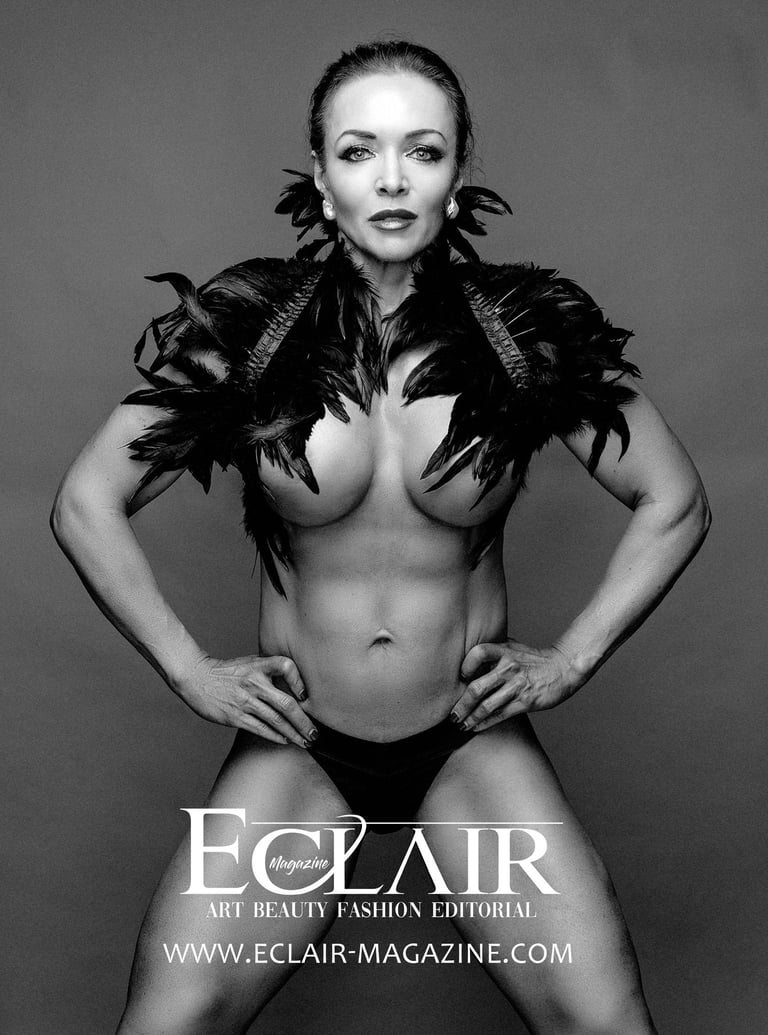

Quality, not quantity
We have made quality our habit. It’s not something that we just strive for – we live by this principle every day.
